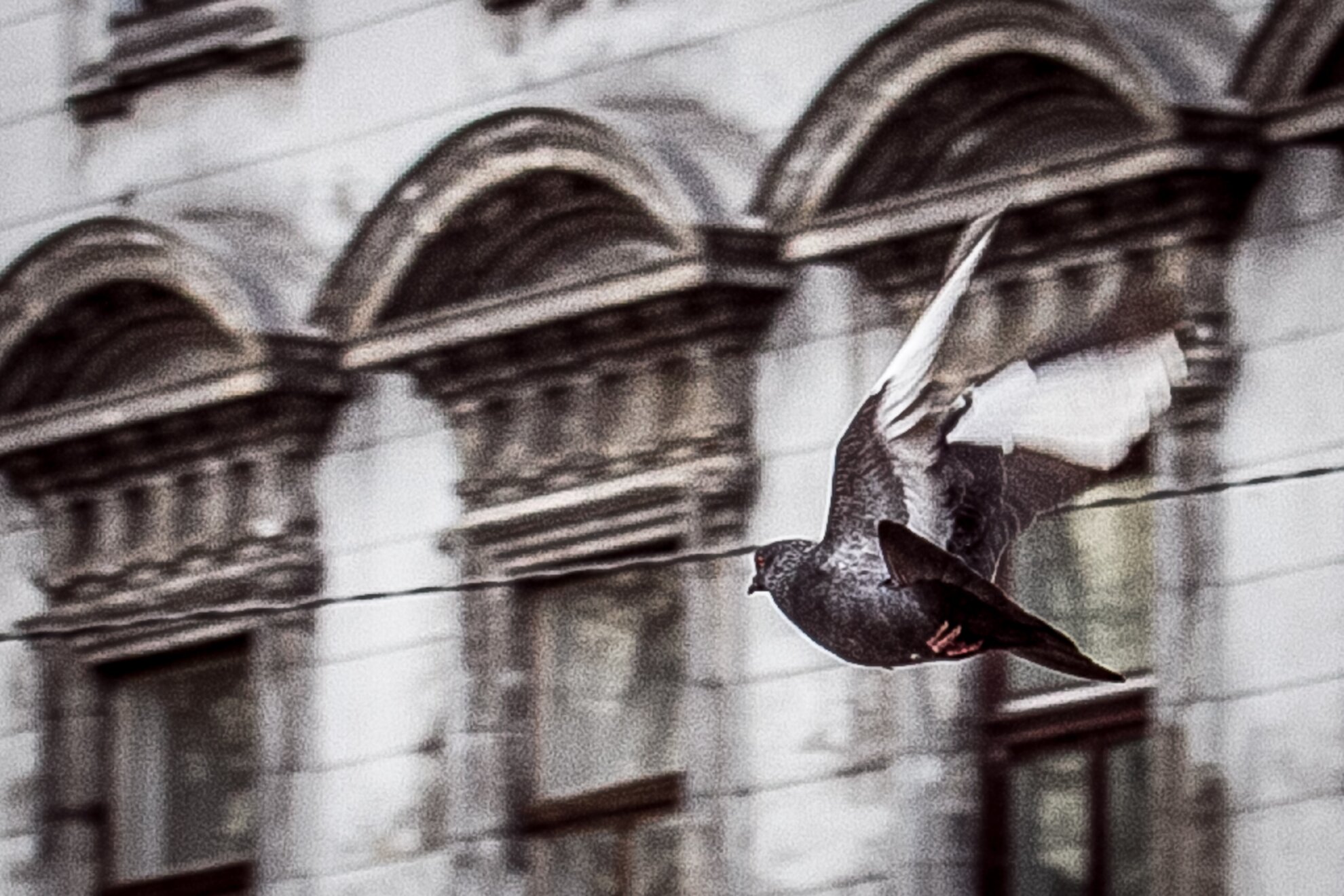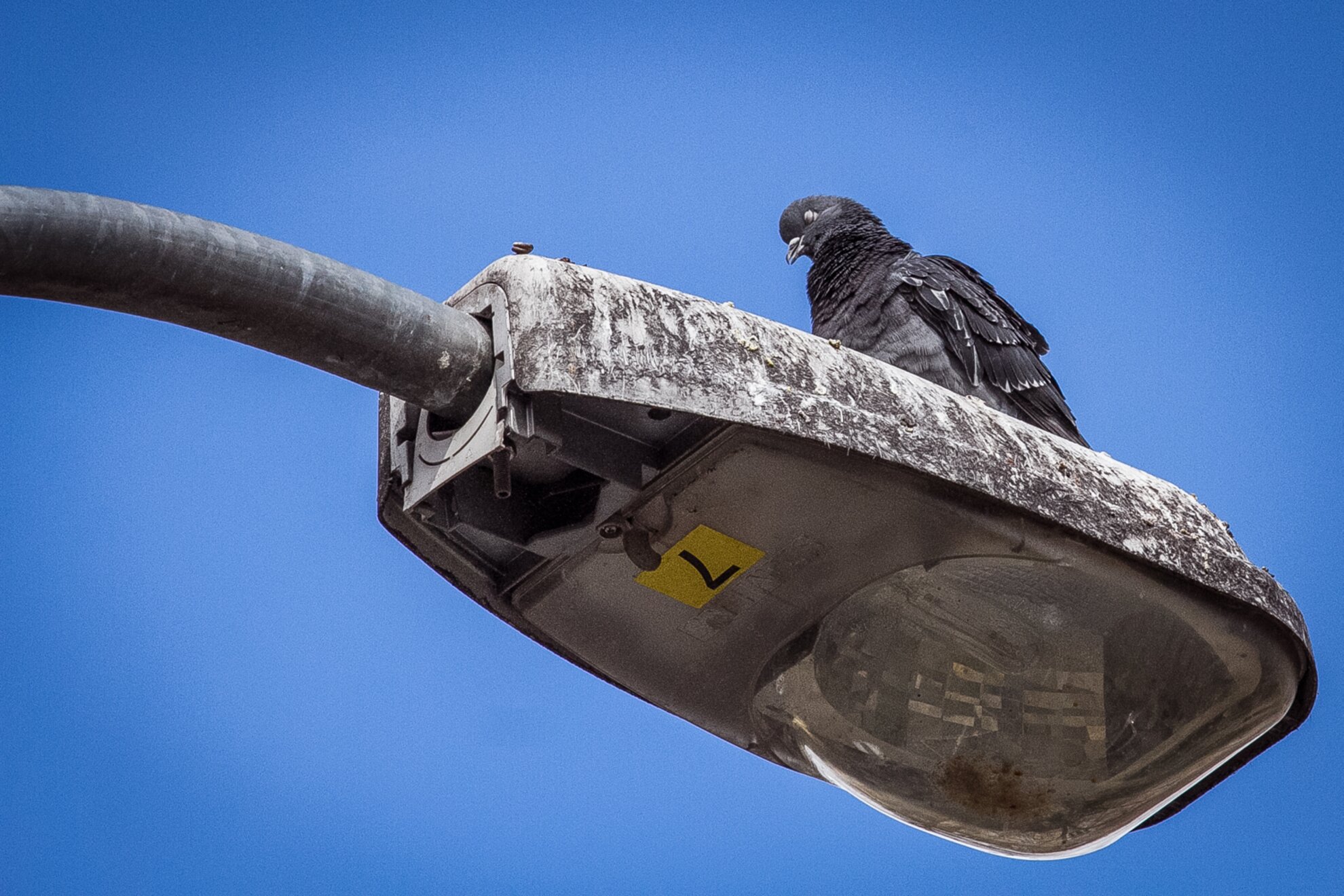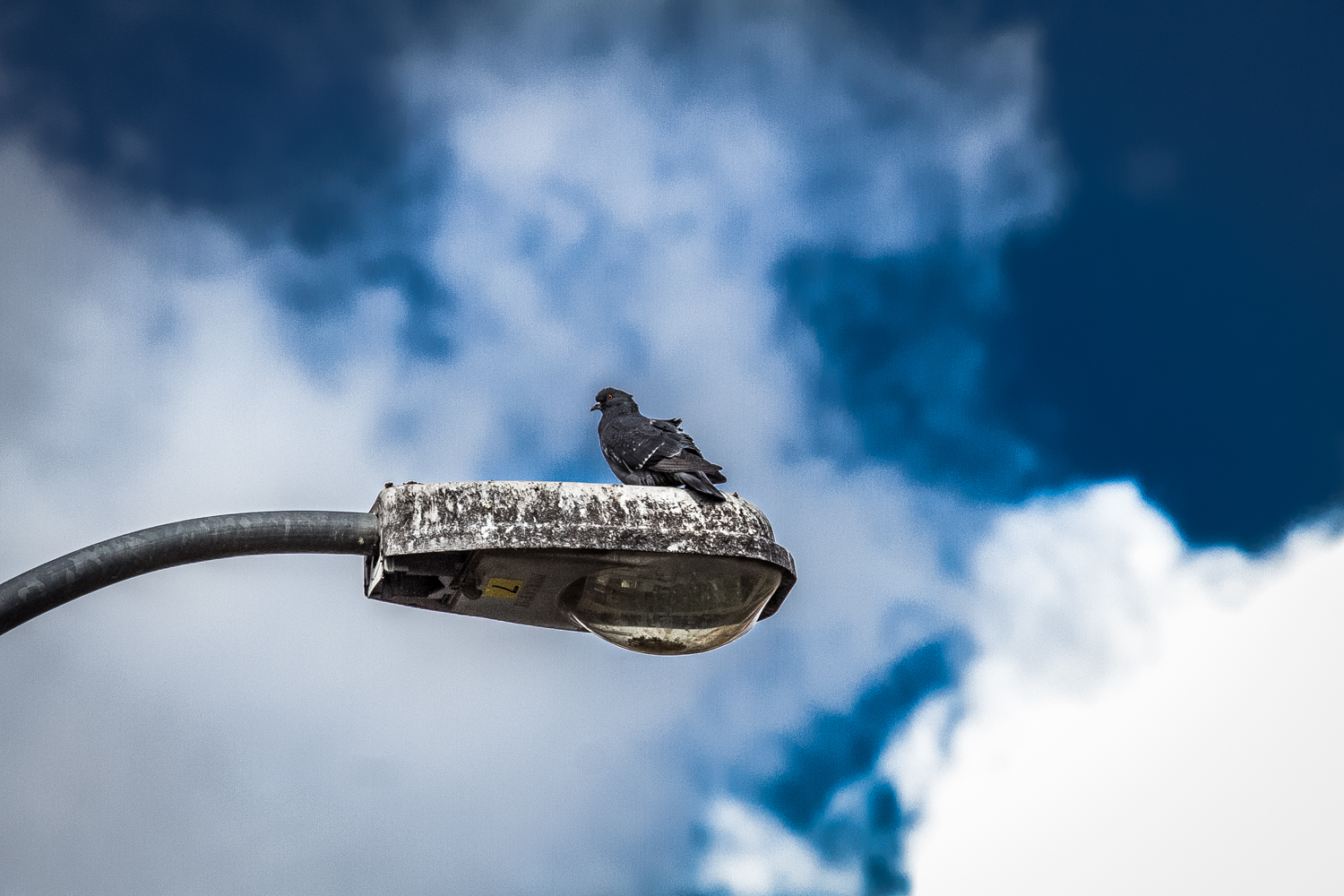A friendship of thousands of yearsThe pigeon found in urban areas, the domestic pigeon, is an old acquaintance - rock doves were domesticated approximately 4,000- 6,000 years ago. They originally lived on cliffs and rock ledges, hence their attraction to buildings. While most pigeon breeds were kept for their meat, the domestic pigeon played other important roles. In ancient Mesopotamia, it was the sacred bird of the goddess Ishtar. At the time, disturbing the peace of pigeons drew serious punishment in Syria. It was the bird of Aphrodite - the Greek goddess of beauty and love, and in Japan the bird's appearance is considered to bring luck. The pigeon also appears in the Bible bearing an olive branch and is a symbol of peace, as opposed to the falcon and the eagle, which are symbols of power. Most people in Budapest, however, seem to have a low opinion of pigeons.

More irritating than dangerousAs it happens, we have fewer reasons to fear and loathe pigeons than we might believe. The problem, in most cases, is the droppings that accumulate under their resting spots. This is due to the fact that they live in groups, bound to certain places. Irrespective of what is stained (a monument or your coat), stains remain a vex, but remember they are birds: they don't consider city-branding factors.
As for their overpopulation, we have ourselves to blame. Whatever society throws away, they will happily eat. The city is a haven for these birds that just want a good meal.
But, understandably, the residents of Budapest don't usually see the beauty of pigeons.

From hero to zeroFun fact: in WWII, the British government used 250,000 homing pigeons as messengers. 32 of these war pigeons were even awarded with the highest possible decoration for valour given to animals, the Dickin Medal. Pigeons make great messengers, since they are highly attached to their roost. Even more incredibly, a pigeon taken away from its mate will travel home at any price, even from thousands of kilometres away.

It's difficult to understand how human-pigeon relations have deteriorated to the point where posts about human and animal health, street cleaning and animal welfare are found on the website of Birdlife Hungary, and there are even discussions about how to exterminate or banish these birds. This is particularly interesting when you consider that the problem of dog excrement left behind in the city's streets is a problem of greater scale.

In any case, attempts at extermination are futile. Attempts to shoot or poison them is extremely dangerous within the city. Trapping and relocating them would also be pointless, since these creatures stubbornly return home even from great distances. The use of falcons (as airports do) could be considered a somewhat viable solution, but the technique is only effective in open spaces because pigeons easily lose these predators in crooked urban spaces. The best method, supposedly, is to control feeding and the hope that they move away by themselves.

Pigeons are not evilThe problems of living together would be solved if we just avoided hostility and tried to get to know the birds, for it seems we are bound to live with them anyway, and they are quite similar to our pets - and even us in many respects. For example, the birds of several pigeon breeds choose a partner for life, and these strong roots, and their non-migratory lifestyle, prevents them from moving on - just like many humans. The similarities do not stop here: pigeon parents do an equal share of brooding (sitting on eggs to incubate them) and rearing the nestlings until the little ones move out.

It is important to note that these animals do not want to cause any harm; it's just that they feel fine here and use the city in an expert manner. We can only do one thing: accept that coexistence is inevitable, and that we all live on this planet as equals.





